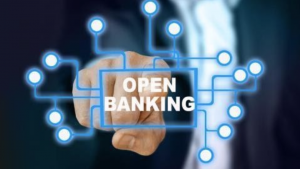Fintech has evolved considerably and changed rapidly in recent few years, impacting diverse industries of trading, banking, insurance, financial investment, wealth and asset management. Banks, financial institutions and businesses have proactively engaged with fintech applications. In the next few years, the rise of Contactless Payments, On-demand Insurance, Algorithm Trading, Robo Advising and Open Banking are major megatrends being unleashed in the era of Fintech.
Banks and fintech startups have utilized technologies like Blockchain, Data Analytics, Machine Learning and Artificial Intelligence (AI) to help speed up and automate transactions as well as reduce operational costs.
For instance, the deployment of Blockchain, a form of decentralized distributed ledger technology, provides a secure and efficient platform for storing and maintaining transactional data records. Once stored on the blockchain platform and verified through Smart Contracts, the transactions become immutable. As such. banks and fintech enterprises can safeguard customers’ data security and create efficiency from business operations.
Nowadays, businesses have become more customer-centric to stand their ground. It never has been more important to understand what target customers really want and know customers’ value.
Contactless payments make transactions secure and fast

Contactless payments are synonymous with cashless payments that do not require contact between the devices used in consumer payment and POS terminals by the merchant. Contactless payment systems are based on RFID (Radio Frequency Identification) and NFC (Near Field Communication) technologies.
According to a recent Global Market Insights report, the increasing number of cashless transactions in emerging economies positively impact growth in the smart card market. The smart cards include a small microchip that processes and stores electronic data while securing data, assets, and identity. The global smart card market is expected to reach US$65 billion by 2025 with banking representing about 25%.
The NFC technology within contactless readers can interact with phones and connected mobile devices such as watches or rings. The contactless payment allows customers to simply wave their smartphone across the reader to complete transactions swiftly. Contactless payments are faster and more secure than the PIN technology as it transfers the encrypted data to the point-of-sale device instantaneously.
Currently, payments are enabled via secure contactless and mobile payment systems such as Samsung Pay, Apple Pay, Google Pay, Fitbit Pay, or any bank mobile application that supports contactless.
Contactless payments are faster than cash and card transactions. Businesses have been focusing on offering superior customer experience and contactless payments will help achieve that. Customers show greater loyalty toward businesses which have embraced contactless payment technology.
Insurtech embrace AI application to provide on-demand insurance

Insurtech startups have embraced fintech innovations to impact the insurance industry. With Data Analytics and Artificial Intelligence (AI) applications, Insurtechs has leveraged data-driven insights to curate on-demand protection coverage that is customized and flexible for customers.
According to the recent World Insurance Report, 41% of customers said they are willing to purchase usage-based insurance and 37% explore on-demand insurance coverage. The report also showed 37% of customers are willing to share personal data in exchange for personalized coverage and better protection.
For instance, wearable devices and smartphone apps are increasingly popular with consumers and insurers, especially in healthcare and wellness space. Some devices can count the calories burnt during a workout and monitor customers’ heart rate and blood pressure. Insurtechs and startups have invested in developing the devices and wellness/health apps that allow customers to monitor their health. As such, customers can use the data to improve their health and fitness levels while insurtech can utilize the data to find out customers’ habits, preferences and offer customized insurance coverage.
With blockchain technology, insurtech startups have introduced simpler purchase processes and end-to-end automated claim management, thereby streamlining operations securing customers’ data privacy and making a purchase/ digital payment process user friendly.
With an agile operating model and digital innovations, insurtechs target potential profit pools and capture share among target customer segments. It is widely expected insurtech startups will increase the overall growth levels of the insurance industry and gain big market share.
Algorithm trading automates investment and trading activities

Algorithmic trading is amongst the most talked about financial technologies in recent years. It has given trading firms more power in the rapidly evolving markets by eliminating human errors and changing the way financial markets operate.
Algorithmic trading can be applied in many forms of investment and trading activities such as commodity and foreign exchange trading by brokerage firms and investment banks.
Algorithmic trading uses computer programs to trade at high speeds and volume based on criteria, such as prices and specific market conditions. Devoid of human emotions, latency, technology-oriented, algorithmic trading executes trading commands accurately and instantly.
Algorithmic trading automates the trading process, ensuring that orders are executed at what are deemed to be optimal buying or selling conditions. The algorithms have the capability to analyze a variety of parameters and technical indicators in a second and execute the trade immediately. The increased speed on trading becomes important as the price movements can be captured by traders as soon as they occur.
Robo-advisors offer personalized wealth management with data security

Unlike traditional human-to-human financial advice, robo-advisors provide personalized and automated financial advice to customers based on algorithms.
Robo-advisors collects information from clients about their financial situation and future goals and then uses the data to offer advice and automatically invest client assets. Robo-advisors offer easy account setup, financial planning, portfolio management, and data security features, exceptional customer experiences and low fees. The main advantage of robo-advisors is that they are low-cost alternatives to traditional financial advisors.
Also, robo-advisors are available 24/7 and it takes significantly less capital to get started. In contrast, human financial advisors prefer high-net-worth individuals who need a variety of wealth management services and can afford to pay for them.
The future of robo-advising is bright. Robo-advising will be a tool used by nearly everyone, from financial advisors in wealth management firms to the average at-home retail investor.
Open Banking API fosters customers to access to best-ever financial services and deals

Open Banking is a system that provides a user with a network of financial institutions’ data through the usage of application programming interfaces (APIs). With Open Banking APIs, banking data are available in real-time, providing consumers with better ways to conduct transactions and make investments.
Open Banking gives the benefit of choice to customers as they can select from multiple financial service providers available. It also empowers customers to take charge of their finances and manage their bank accounts.
Open banking APIs also enable service personalization to benefit customers immensely. Customers can now have access to multiple accounts in one place and enjoy the best deals available. It puts the power back into the hands of customers, enabling them to securely use third-party financial products and services that rely on banking data.
Meanwhile, Open Banking offers an excellent opportunity to fintech startups to meet the customers’ needs for new and better services such as personal finance management and access to credit services through a single application.
In conclusion, fintech has been used to automate insurance, banking services, financial investment, trading and wealth management. Fintech usage has risen significantly with an increasing number of players adopting innovative technologies to offer best-ever products and services to customers. The development of Contactless Payments, On-demand Insurance, Algorithm Trading, Robo Advising and Open Banking are the hottest trends in the era of Fintech.
Drop us a line at info@ndngroup.com to learn more about how our innovating technologies help expand your business in the era of fintech.
